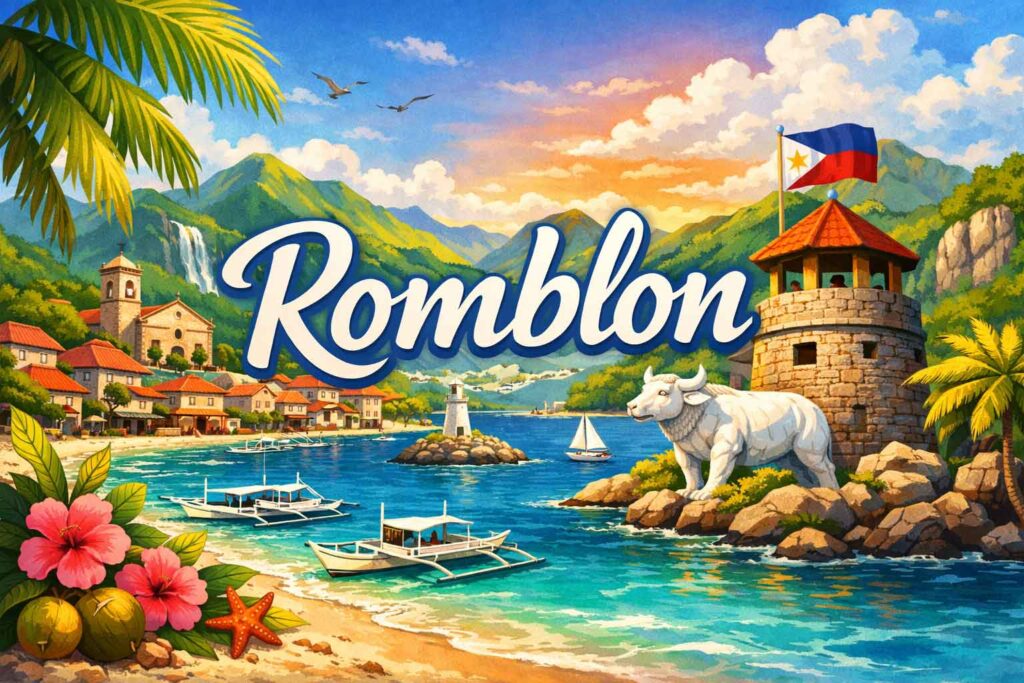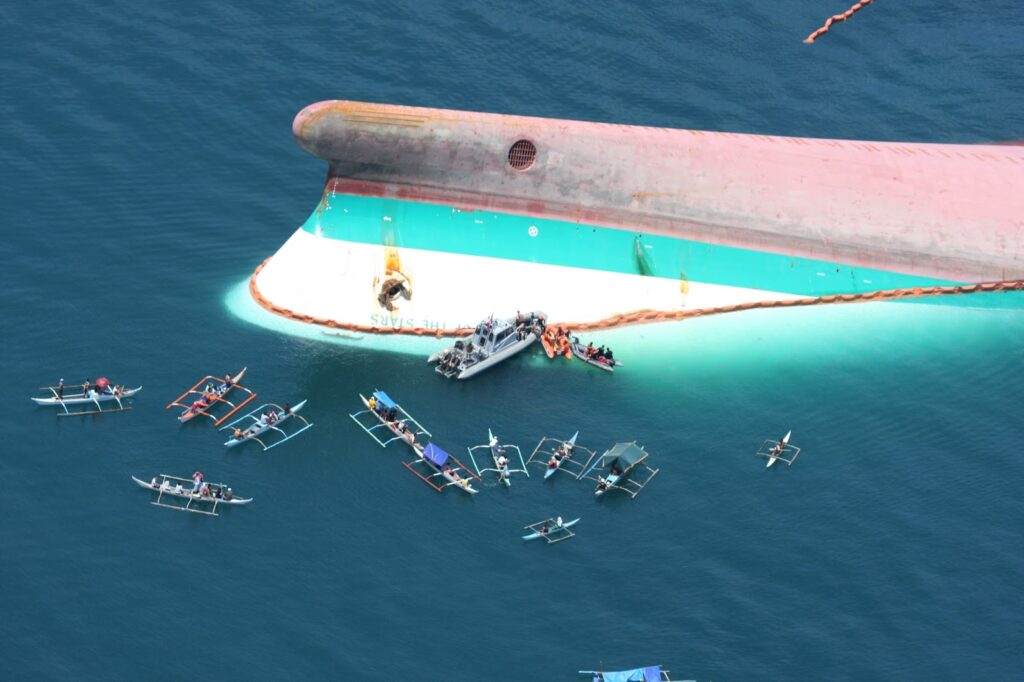The significance of eco-tourism in supporting Romblon’s native financial system
Welcome to the breathtaking island paradise of Romblon! Nestled within the coronary heart of the Philippines, this hidden gem is a haven for nature lovers and journey seekers alike. However past its pristine seashores and crystal-clear waters, Romblon holds a secret that units it other than different vacationer locations – its dedication to eco-tourism. On this weblog publish, we’ll discover the significance of eco-tourism in supporting Romblon’s native financial system and delve into how one can be a part of this sustainable motion. So seize your snorkel gear and put together to dive deep into the wonders of eco-tourism in Romblon!
What’s eco-tourism?
What’s eco-tourism, you ask? Effectively, it is not your typical vacationer expertise. Eco-tourism is all about exploring and appreciating pure environments whereas minimizing the influence on them. It is about immersing your self in the great thing about nature and leaving nothing however footprints behind.
In Romblon, eco-tourism takes middle stage as guests are inspired to attach with the atmosphere in a accountable method. From climbing by way of lush rainforests to diving amongst vibrant coral reefs, each exercise is designed to showcase the wonders of Mom Nature with out inflicting hurt.
However eco-tourism is not nearly having fun with picturesque landscapes; it additionally promotes cultural preservation and group involvement. Vacationers have the chance to interact with native communities, study their traditions and lifestyle, and assist native companies straight.
By embracing eco-tourism in Romblon, guests develop into lively members in conserving the fragile ecosystems that make this island paradise so distinctive. They contribute to sustainable improvement by producing earnings for native communities and creating alternatives for future generations.
So whether or not you are lounging on pristine seashores or exploring hidden waterfalls, do not forget that each step you’re taking could make a constructive influence. Embrace eco-tourism in Romblon and let nature information your journey in the direction of a extra sustainable future!
Why is eco-tourism vital?
Eco-tourism is far more than only a passing pattern. It’s an important and sustainable means of experiencing and appreciating the pure great thing about our planet. However why precisely is eco-tourism vital?
Eco-tourism helps to protect and shield fragile ecosystems. By selling accountable journey practices, resembling minimizing waste and respecting wildlife habitats, we are able to be sure that these pristine environments stay intact for future generations.
Eco-tourism helps native communities. When vacationers go to pure areas, they typically keep in locally-owned lodging, eat at native eating places, and buy souvenirs made by native artisans. This injection of vacationer {dollars} straight advantages the individuals who stay in these areas.
Moreover, eco-tourism promotes cultural change and understanding. Touring to distant or rural locations permits guests to immerse themselves in several cultures and traditions. This not solely enriches their very own experiences but additionally offers financial alternatives for locals who can share their customs by way of guided excursions or homestays.
Moreover, eco-tourism has the potential to create jobs in areas the place conventional industries could also be declining or non-existent. By investing in sustainable tourism initiatives, communities can diversify their economies whereas nonetheless defending their atmosphere.
Eco-tourism fosters a way of stewardship in the direction of nature amongst guests. When individuals witness firsthand the wonders of our planet – from coral reefs teeming with life to lush rainforests teaming with biodiversity – they’re impressed to develop into advocates for conservation efforts again dwelling.
In conclusion,
eco-tourism performs an important position in preserving our pure heritage whereas supporting native economies.
By embracing sustainable journey practices,
we are able to be sure that future generations could have the chance
to expertise the wonder and marvel
of locations like Romblon
How does eco-tourism assist the native financial system in Romblon?
Eco-tourism performs an important position in supporting the native financial system of Romblon. By selling sustainable practices and highlighting the pure great thing about the area, eco-tourism attracts guests from around the globe who’re searching for distinctive experiences whereas additionally caring for the atmosphere.
A technique eco-tourism helps Romblon’s financial system is thru job creation. As extra vacationers go to, there’s an elevated demand for native guides, hospitality workers, artisans, and different service suppliers. This not solely offers employment alternatives for residents but additionally helps to diversify their earnings sources.
Moreover, eco-tourism encourages native entrepreneurship. Many small companies have emerged to cater to eco-conscious vacationers by providing natural meals choices or environmentally pleasant lodging. These enterprises contribute to financial progress whereas preserving the authenticity of Romblon’s tradition and traditions.
As well as, income generated from eco-tourism actions resembling guided nature excursions or snorkeling journeys goes straight again into supporting conservation efforts and group improvement tasks. This ensures that each the atmosphere and native communities profit from tourism actions.
By embracing sustainable tourism practices and prioritizing environmental preservation alongside financial progress, Romblon can proceed reaping the advantages of eco-tourism in a means that respects its pure sources and enhances its total attraction as a vacation spot for accountable vacationers.
(Word: The phrase rely could differ relying on formatting decisions)
What are among the challenges confronted by eco-tourism in Romblon?
Challenges Confronted by Eco-Tourism in Romblon
1. Restricted infrastructure: One of many fundamental challenges confronted by eco-tourism in Romblon is the restricted infrastructure. The shortage of correct roads, transportation techniques, and lodging choices could make it troublesome for vacationers to discover the pure great thing about the area.
2. Lack of knowledge: One other problem is the ignorance about eco-tourism amongst each locals and guests. Many individuals could not perceive the significance of preserving nature or will not be conscious of sustainable practices that may reduce their influence on the atmosphere.
3. Balancing conservation and improvement: Putting a stability between conserving pure sources and selling tourism improvement could be a problem in Romblon. It is vital to make sure that tourism actions don’t hurt fragile ecosystems or disrupt native communities.
4. Waste administration: Correct waste administration is essential for sustaining ecological stability, nevertheless it stays a problem in lots of vacationer locations in Romblon. With out efficient waste disposal techniques, air pollution can threaten delicate ecosystems resembling seashores, coral reefs, and forests.
5. Local weather change impacts: The growing risk from local weather change poses extra challenges for eco-tourism in Romblon. Rising sea ranges, excessive climate occasions, and ocean acidification can all have detrimental impacts on coastal areas and marine biodiversity.
Overcoming these Challenges:
To beat these challenges, collaboration between authorities companies, native communities, and stakeholders is essential.
– Investing in infrastructure improvement will improve accessibility for vacationers whereas minimizing environmental influence.
– Elevating consciousness by way of instructional campaigns may help enhance understanding about eco-tourism rules amongst each locals and guests.
– Implementing strict laws relating to waste administration practices will assist shield pure habitats from air pollution.
– Adapting to local weather change by implementing sustainable practices like utilizing renewable vitality sources or supporting reforestation efforts will contribute to long-term resilience.
In conclusion,
Eco-tourism has immense potential to assist the native financial system in Romblon, nevertheless it additionally faces a number of challenges. By
How can we overcome these challenges?
Overcoming the challenges confronted by eco-tourism in Romblon requires a collective effort from varied stakeholders. One of many key challenges is the ignorance and understanding about sustainable tourism practices amongst each vacationers and locals. To deal with this, training and outreach packages might be applied to boost consciousness in regards to the significance of preserving pure sources and selling accountable tourism.
One other problem is the necessity for infrastructure improvement to assist eco-tourism actions. This consists of enhancing transportation choices, establishing correct waste administration techniques, and making certain dependable entry to wash water and electrical energy in distant areas. Collaborating with authorities companies, native communities, and personal sector companions is essential in tackling these infrastructure challenges.
Moreover, there’s a want for capability constructing inside native communities to actively take part in eco-tourism initiatives. This includes offering coaching on hospitality companies, guiding strategies, conservation practices, and entrepreneurship expertise. Empowering locals to take possession of their pure sources not solely advantages them economically but additionally contributes to their sense of pleasure and stewardship.
Selling collaboration between completely different sectors is crucial for overcoming these challenges. Authorities companies can present coverage assist whereas NGOs can supply experience in conservation efforts. The non-public sector ought to prioritize sustainable enterprise practices that align with eco-tourism rules.
By addressing these challenges head-on by way of training, infrastructure improvement, capability constructing, and collaboration between sectors, Romblon has the potential to develop into a thriving hub for sustainable tourism that helps its native financial system whereas preserving its pure magnificence for future generations to take pleasure in.
Conclusion
Eco-tourism performs an important position in supporting the native financial system of Romblon. By selling sustainable practices and preserving the pure great thing about the area, eco-tourism not solely attracts guests but additionally creates employment alternatives for native communities. It fosters a way of pleasure and possession among the many residents, encouraging them to guard their atmosphere and cultural heritage.
Nevertheless, there are challenges that should be addressed for the profitable progress of eco-tourism in Romblon. These embrace restricted infrastructure, ignorance amongst vacationers about accountable journey practices, and balancing conservation efforts with financial improvement.
To beat these challenges, it’s essential to spend money on enhancing infrastructure resembling transportation techniques and lodging. Moreover, elevating consciousness by way of training campaigns may help educate each vacationers and locals on sustainable tourism practices.
Collaboration between authorities organizations, native communities, and tourism stakeholders can be important to create insurance policies that assist eco-friendly initiatives whereas making certain financial advantages attain all ranges of society.
By embracing eco-tourism as a means ahead for Romblon’s financial system, we are able to guarantee long-term sustainability whereas preserving its distinctive pure wonders for future generations to take pleasure in. Allow us to all play our half in defending this gem of an island vacation spot!


